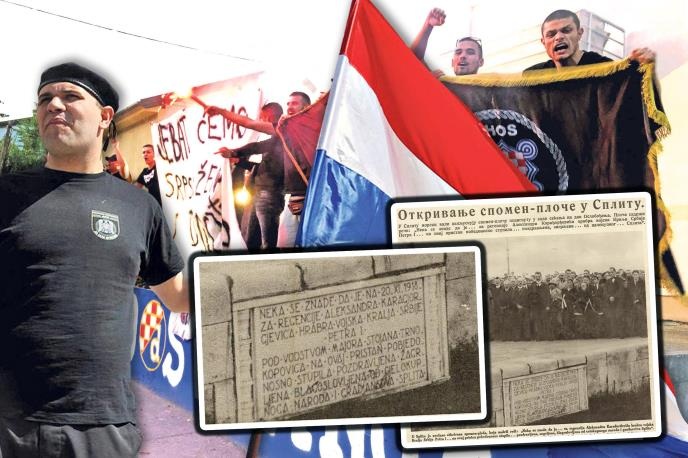The Zagreb City Assembly has adopted a resolution urging the mayor to ensure that public spaces and venues managed by the city are not used to display or promote fascist or Ustaša symbols, slogans, or messages inciting national, racial, or religious hatred – including the controversial salute “Za dom spremni” (“For the Homeland – Ready”).
The motion, introduced by the ruling Možemo! (We Can!) party, cites Croatia’s constitutional commitment to antifascism, as well as rulings by the Constitutional Court and the European Court of Human Rights (ECHR), both of which found that public use of Ustaša symbols does not fall under freedom of expression protections because it promotes hatred and intolerance.
“The City of Zagreb, as a public authority, has an obligation to prevent public spaces and city-managed venues from becoming places where content negating the antifascist foundations of the Republic of Croatia and modern Europe is disseminated,” the statement said.
The resolution calls on Mayor Tomislav Tomašević to take “all necessary measures” to safeguard public order and uphold constitutional values by prohibiting such content at city-owned facilities, institutions, and public areas used for events under city-issued permits. It will be published in the official gazette of the City of Zagreb.
Tomašević said before the vote that the resolution was “primarily a political decision” by the ruling majority and aimed at setting clear constitutional boundaries on what can and cannot be allowed in public venues.
The move comes amid renewed debate over nationalist symbols in Croatia, particularly around singer Marko Perković “Thompson,” whose concerts have long drawn controversy for the use of the “Za dom spremni” salute, associated with the fascist Ustaša regime of World War II.
Tomašević confirmed that Thompson’s scheduled concert on December 27 would go ahead as planned under an existing contract, but that a proposed second concert on December 28 would not be approved. “I am a legalist, and I will respect the contract,” he said, adding that future concerts would depend on whether nationalist symbols or chants appear at the upcoming show.
Prime Minister Andrej Plenković criticized the city’s decision, saying it carried “no legal weight.” Speaking at the Interliber Book Fair, he called the move “a political gesture” and accused opposition parties of fueling ideological divisions. “The song ‘Bojna Čavoglave’ has existed for 35 years and has already been addressed by the courts. There’s no ambiguity about it,” he said.
Deputy Prime Minister Branko Bačić also called the city’s resolution unlawful, arguing that municipal authorities lack the power to restrict artistic expression or regulate song content at concerts.
The debate over Ustaša symbolism remains one of the most polarizing cultural and political issues in Croatia, where the “Za dom spremni” salute—used by the fascist regime during World War II—has repeatedly resurfaced at public gatherings, football matches, and concerts.
Would you like me to adapt this version slightly to sound like a short Reuters newswire format (under 400 words) — e.g., more concise and ready for syndication?



